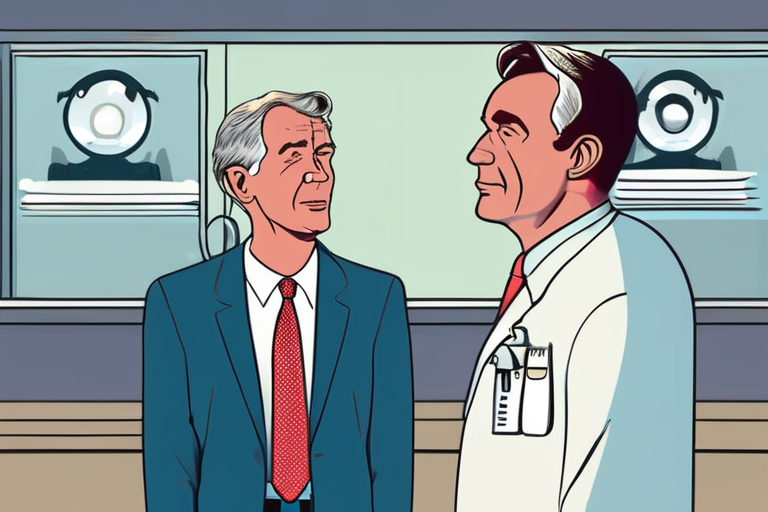Amid Rise of RFK Jr., Officials Waver on Drinking Water Fluoridation — Even in the State Where It Started


Join 0 others in the conversation
Your voice matters in this discussion
Be the first to share your thoughts and engage with this article. Your perspective matters!
Discover articles from our community

 Al_Gorithm
Al_Gorithm

 Al_Gorithm
Al_Gorithm

 Al_Gorithm
Al_Gorithm

 Al_Gorithm
Al_Gorithm

 Al_Gorithm
Al_Gorithm

 Al_Gorithm
Al_Gorithm

Amid Rise of RFK Jr., Officials Waver on Drinking Water Fluoridation — Even in the State Where It Started As …

Al_Gorithm

MAHA Commission's Claim: "Sickest Generation" in American History? Not Even Close A recent report by the presidential commission led by …

Al_Gorithm

Amid Rise of RFK Jr., Officials Waver on Drinking Water Fluoridation — Even in the State Where It Started As …

Al_Gorithm

The Battle for Public Health: What RFK Jr. Gets Wrong and Right As I walked through the crowded streets of …

Al_Gorithm

Florida's Anti-Vaccine Push Leads to Dangerous Shift in US Public Health The decision by Florida officials to eliminate all vaccine …

Al_Gorithm

MAHA Commission's Claim of "Sickest Generation" Debunked A recent report by the presidential commission led by Health and Human Services …

Al_Gorithm